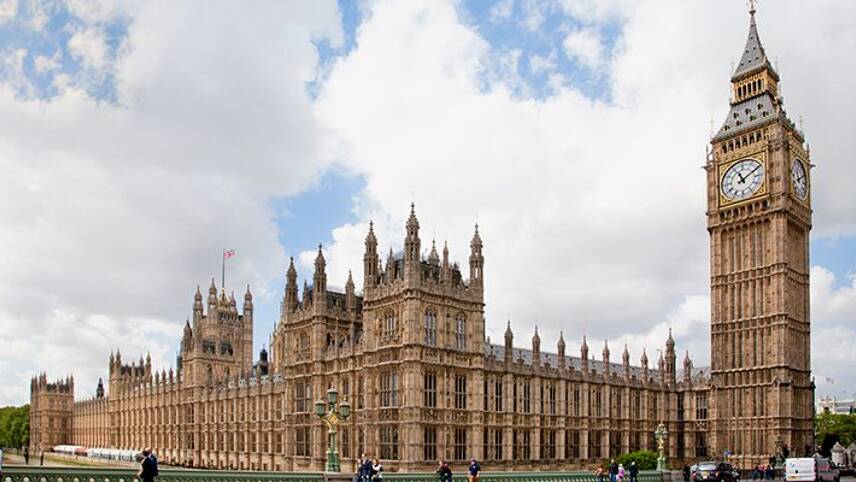This premium content is exclusive to edie Members.
To find out more about edie Membership, please click below.
If you are an existing member, login here

Tomorrow (30 November) marks the kick-off of COP28, drawing together nearly 170 world leaders, among them King Charles.
Lee McDonough, the director general for Net-Zero, Nuclear, and International at the Department for Energy Security and Net-Zero (DESNZ), confirmed during an Aldersgate Group event that the UK pavilion for COP will host visits from Prime Minister Rishi Sunak, Energy Minister Graham Charles Stuart and Energy Secretary Claire Coutinho.
Additionally, the newly appointed Foreign Secretary and ex-Prime Minister David Cameron is slated to attend.
While the UK will have a strong presence in leadership at COP, there are concerns about whether the nation’s leaders will secure a significant spot at the global leadership table.
The Dean Emerita of the Fletcher School at Tufts University, Rachel Kyte, highlights that the UK could potentially face a more isolated position.
She says: “At this COP the UK may find itself somewhat alone. No longer negotiating as part of the EU, no longer a COP President or in the Presidency, and having sent mixed signals over the past year.
“UK diplomats are respected for their capability, but with leadership in question they may find themselves less able to lead.”
Earlier this year, the Prime Minister announced a scaled-back approach toward net-zero policy proposals, emphasising a ‘pragmatic, proportionate, realistic’ strategy. Nevertheless, this shift drew significant scrutiny and concerns from the green economy.
Green advocacy groups contended that this adjustment could potentially send a misleading signal on a global scale, especially at a juncture when international leaders, such as the US with its Inflation Reduction Act, view the journey to net-zero as a significant economic opportunity.
Moreover, at the State Opening of Parliament, King Charles firmly reinforced the Government’s policy roll-backs by confirming an expansion to oil and gas licensing, leading to a decline in confidence in both the public and political spheres regarding the energy transition.
The Government also missed its final opportunity to address the IRA-driven global competition and leadership race in its Autumn Statement this year. The commitments and investments, as noted by the green economy, still fall short of the required scale.
These consistent conflicting messages have sparked inquiries into the UK’s stance regarding critical COP28 priorities, including the global phase-out of all fossil fuels.
Prospects for UK success at COP28: The business case
McDonough emphasises that achieving success in Dubai goes beyond the Government’s efforts alone. Therefore, the Government is seeking the essential involvement of non-state actors, such as businesses, to help build the conditions for success at COP.
She says: “Just make your voices heard. Set out your expectations for COP and amplify your leadership at the summit.
“We have always been very clear– the government cannot do this and will not do this transition alone. You are the people that are going to drive forward and really deliver the impact on the ground.”
The missive’s signatories surged from 300 to 2000 within the last two months, after the Government’s policy pushbacks and the expansion of fossil fuel licensing, underscoring the mounting pressure on the Government to respond swiftly and reclaim the UK’s status as a climate leader.
In the widespread call for business action, a consistent demand echoes: the complete phasing out of all fossil fuels. Nevertheless, research from Carbon Brief indicates that the UK is unlikely to endorse the agenda for fossil fuel phase-out at COP.
Kyte poses a rhetorical question: “Can the UK embrace its soft power capability without being seen to drive results and play the pragmatic role it was previously known for?”
Although the Government has pushed-back its net-zero commitments, it is hoped that businesses will spearhead accelerated climate action at COP.
Prospects for UK success at COP28: The global case
It bears noting that global progress made at COP will also directly impact the UK, given its significant role in international commerce.
According to the World Bank, the UK’s foreign trade represented 57% of its GDP in 2021, as it ranked the 8th largest importer of goods in the world.
Professor Emily Shuckburgh, who heads Cambridge Zero at the University of Cambridge, emphasises that it is crucial for the UK’s strategic interests to actively contribute to substantial global advancements in both mitigating and adapting to climate change.
The interconnected nature of climate-related impacts worldwide directly affects the UK, impacting its economy and national security.
She says: “The fact of the matter is that it is very much in our strategic interest to ensure that we do see significant global progress both on the mitigation and on the adaptation side of things.
“What happens around the world in terms of climate-related impacts has a direct impact on us, the UK economy and national security.”
It is evident that the implications of COP28 extend beyond policy rhetoric; they directly impact the UK’s fiscal stability and resilience, emphasising the need for clarity, stability and resolute action to navigate the evolving landscape of sustainability initiatives.
As the summit progresses, the world will closely watch the UK’s actions, eagerly anticipating whether the nation reassumes its global climate leadership or opts for a less prominent role.


Please login or Register to leave a comment.